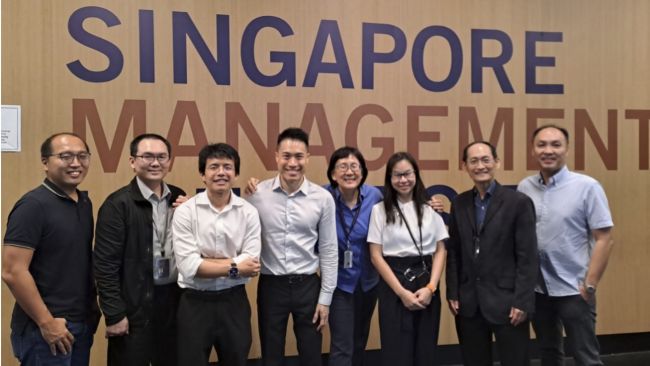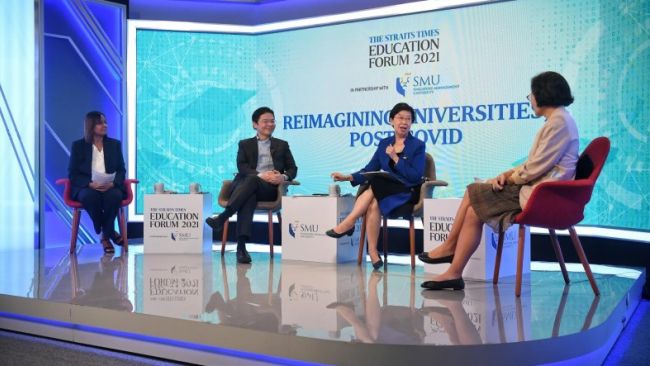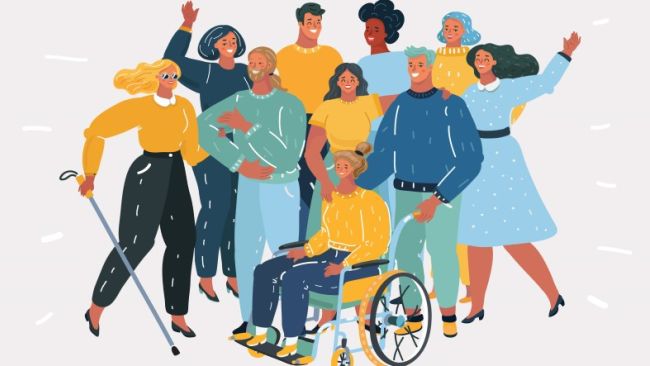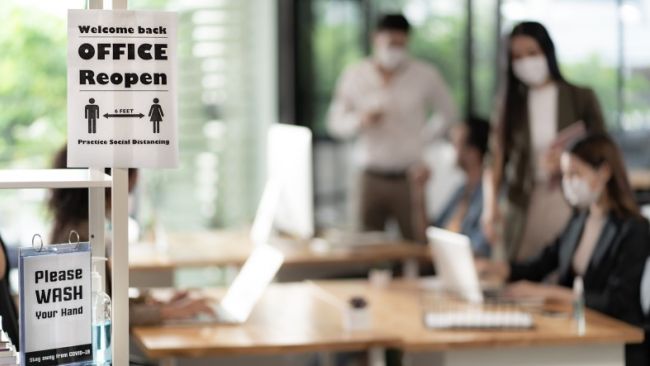
SMU’s Co-Curricular Transcript wins Gold at QS Reimagine Education Awards 2025
Published onSMU’s Co-Curricular Transcript won Gold at QS Reimagine Education Awards 2025, setting a new standard for graduate employability and holistic development. Discover how CCT empowers students.

Blockchain technology has been, in recent years, hailed as a breakthrough disruptor, poised to drive innovation in virtually every industry ranging from legacy organisations to game-changing start-ups in the new digital economy. This revolutionary technology stems from the ability of blockchain to act as a decentralised distributed ledger. It promises more secure, real-time transactions and record-keeping, making it harder for important data to be manipulated or falsified.

From the closure of workplace premises during the Circuit Breaker and adoption of work-from-home and split teams arrangements in 2020, to 75 per cent of employees returning to the workplace in April 2021, before reverting to working from home as a default arrangement just over a month later, it’s been a rollercoaster ride for organisations and employees during the pandemic.

University campuses — with their sprawling lawns that serve as a heartbeat of a vibrant student body; award-winning architectural monoliths; and cosy seminar rooms that encourage lively debate — are traditionally thought of as physical epicentres for inspiring discovery and thought. Covid-19, however, has transformed higher education the world over, triggering a need to pivot existing institutions, and for educators to delve deep into newer, and sometimes better ways of delivering learning outcomes.

Raising funds, building a team, designing a breakthrough product, and taking that proof-of-concept to market are some of the many hurdles startup founders have to overcome in their nascent entrepreneurial journey. With such a daunting list of tasks to tackle, it comes as no surprise that building an independent board of directors is seldom a priority for multitasking bosses.

Ever felt overwhelmed when entering a mega-mall, populated by culinary treats, unbeatable bargains, and trending looks at every price point? Try expanding that smorgasbord of offerings immeasurably, and one could imagine why online shopping is at once a wondrous distraction and a black hole of potential purchases.

In recent years, diversity, equity and inclusivity (DEI) have become more than mere buzzwords in business organisations. Instead, effective DEI initiatives have grown to serve as critical drivers for organisational success. In particular, the events of 2020 have propelled DEI issues to the forefront, with impactful social movements and effects of the pandemic resulting in greater proactivity in achieving true diversity and inclusion.

Last year, a group of SMU students and alumni started a ground-up initiative, the COVID-19 Taskforce for Non-Profits (now known as Thrive Social Consulting), to help future-proof non-profit organisations (NPOs) in Singapore.

The robots are coming. Indeed, in many cases, they are already here — tech-enabled automation has taken over many manual, routine tasks across industries including accounting, and that will continue to happen at an accelerating rate.

Investing in real estate has long been viewed as a safe bet, particularly in the growth regions of Asia. However, the disruptions caused by Covid-19 have seriously scuffed the property sector’s once-bulletproof sheen. The decline of brick-and-mortar retail space seems to have accelerated, as stores struggle to stay afloat during global lockdowns. Many offices remain under-utilised as work-from-home protocols persist. All over the world, uncertainty prevails over the prospects for commercial real estate.

